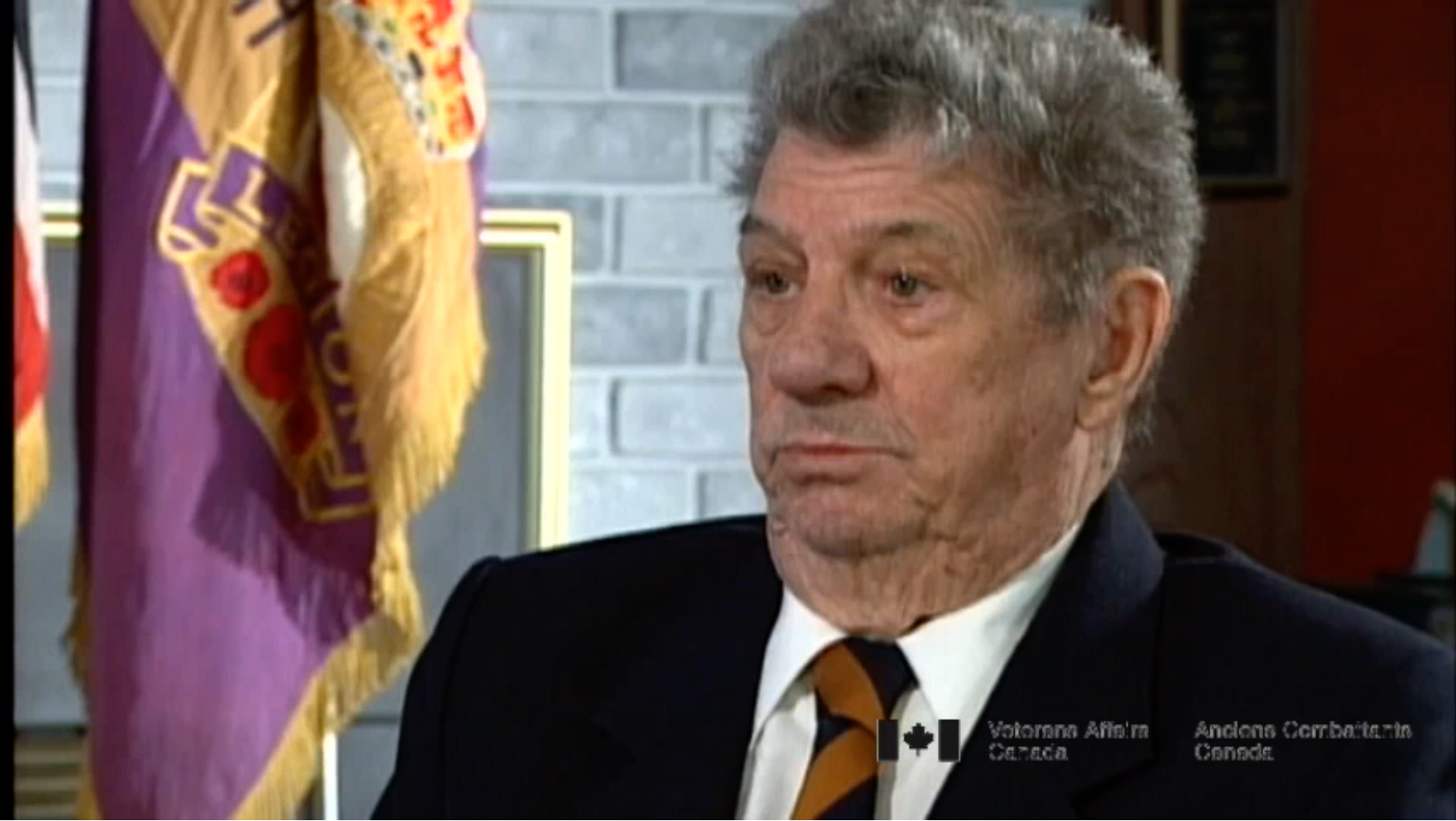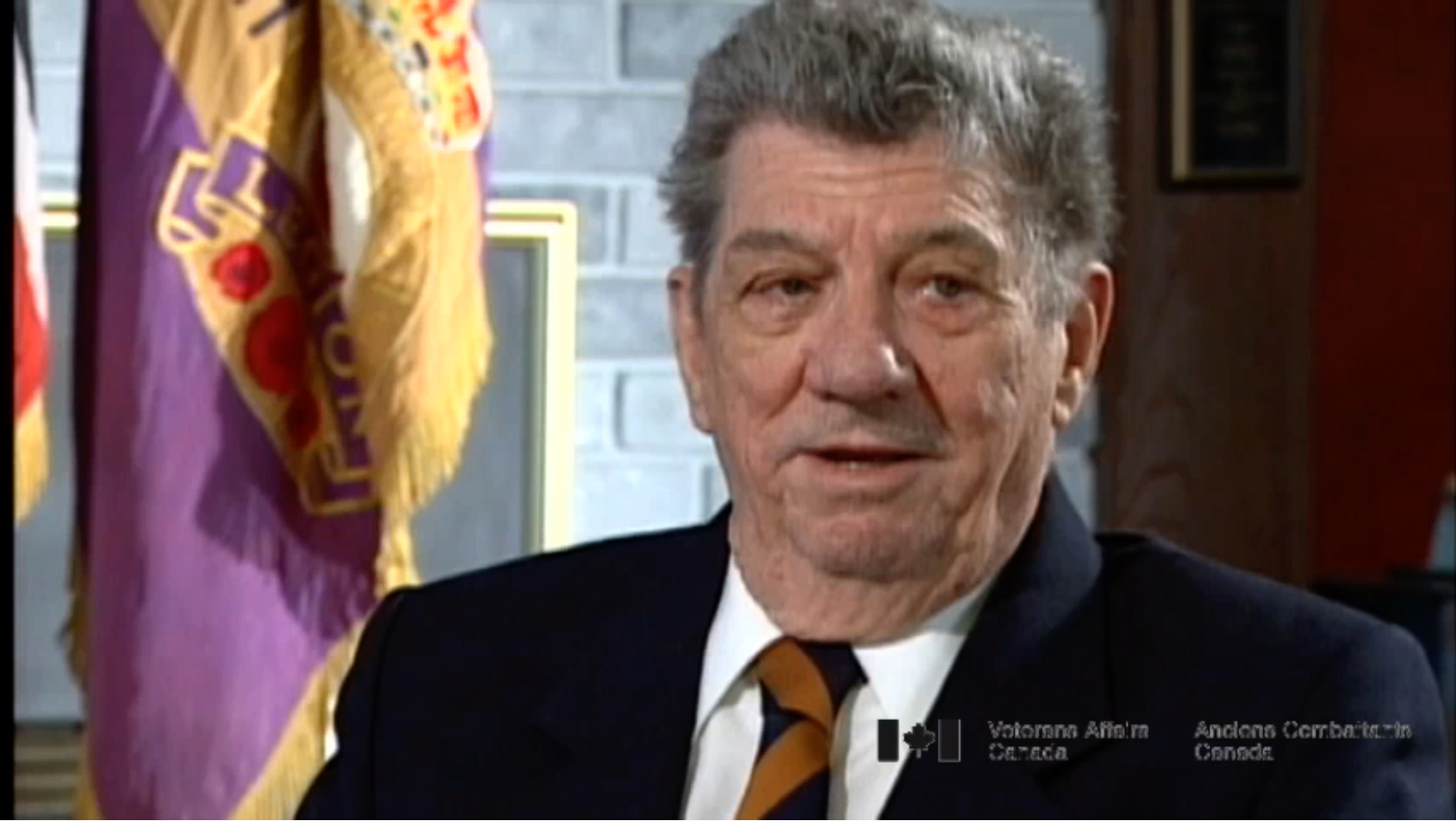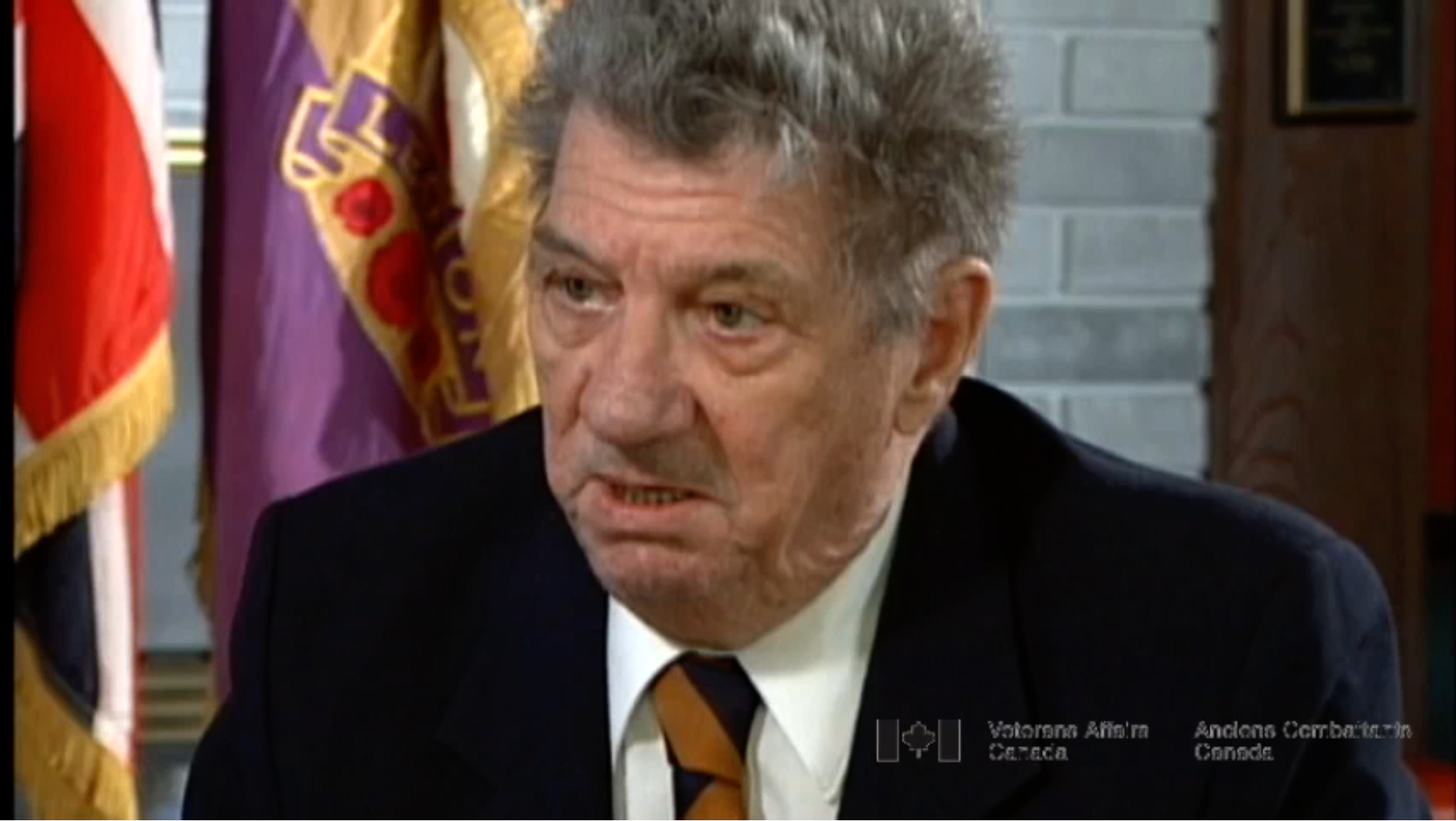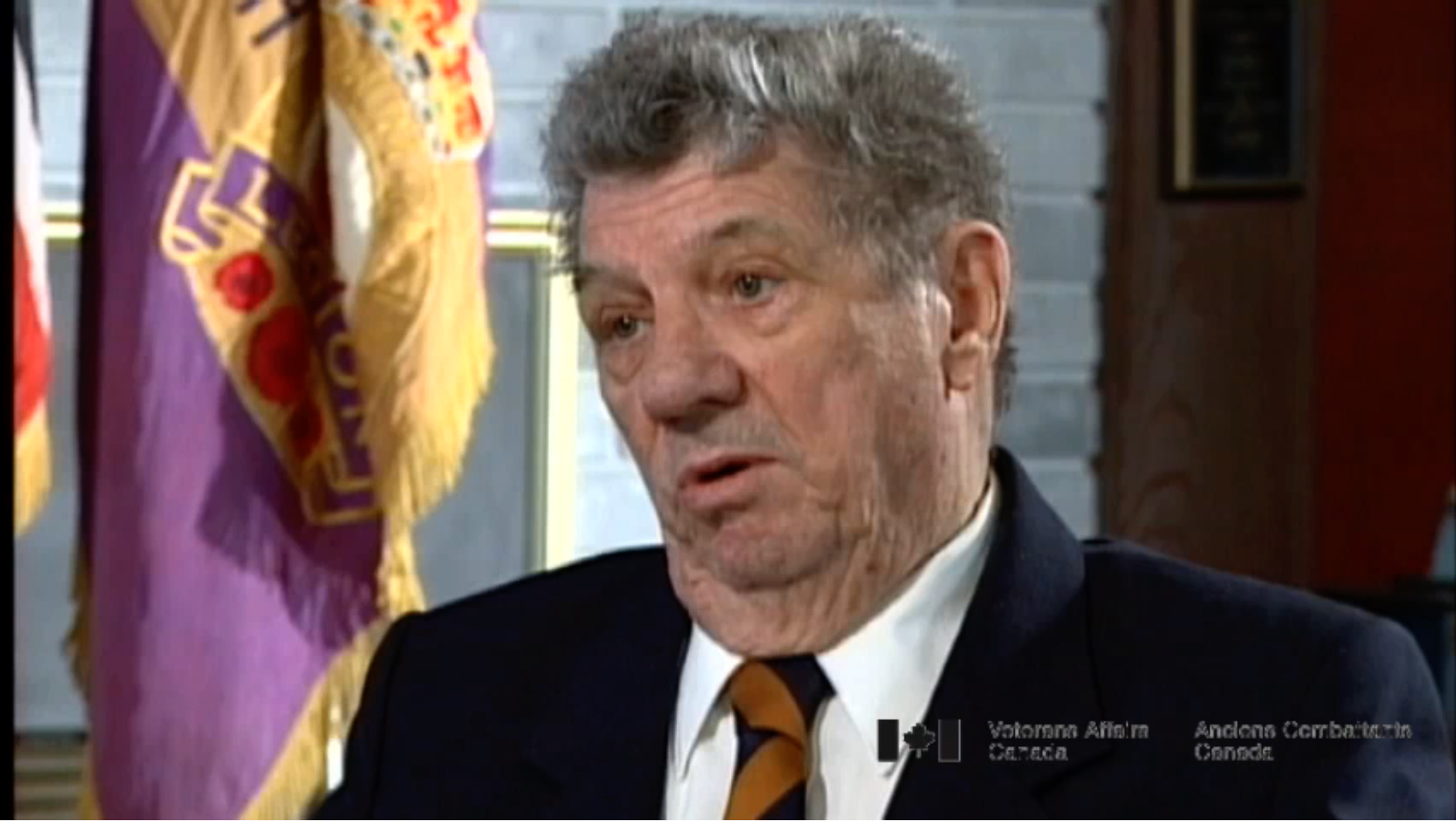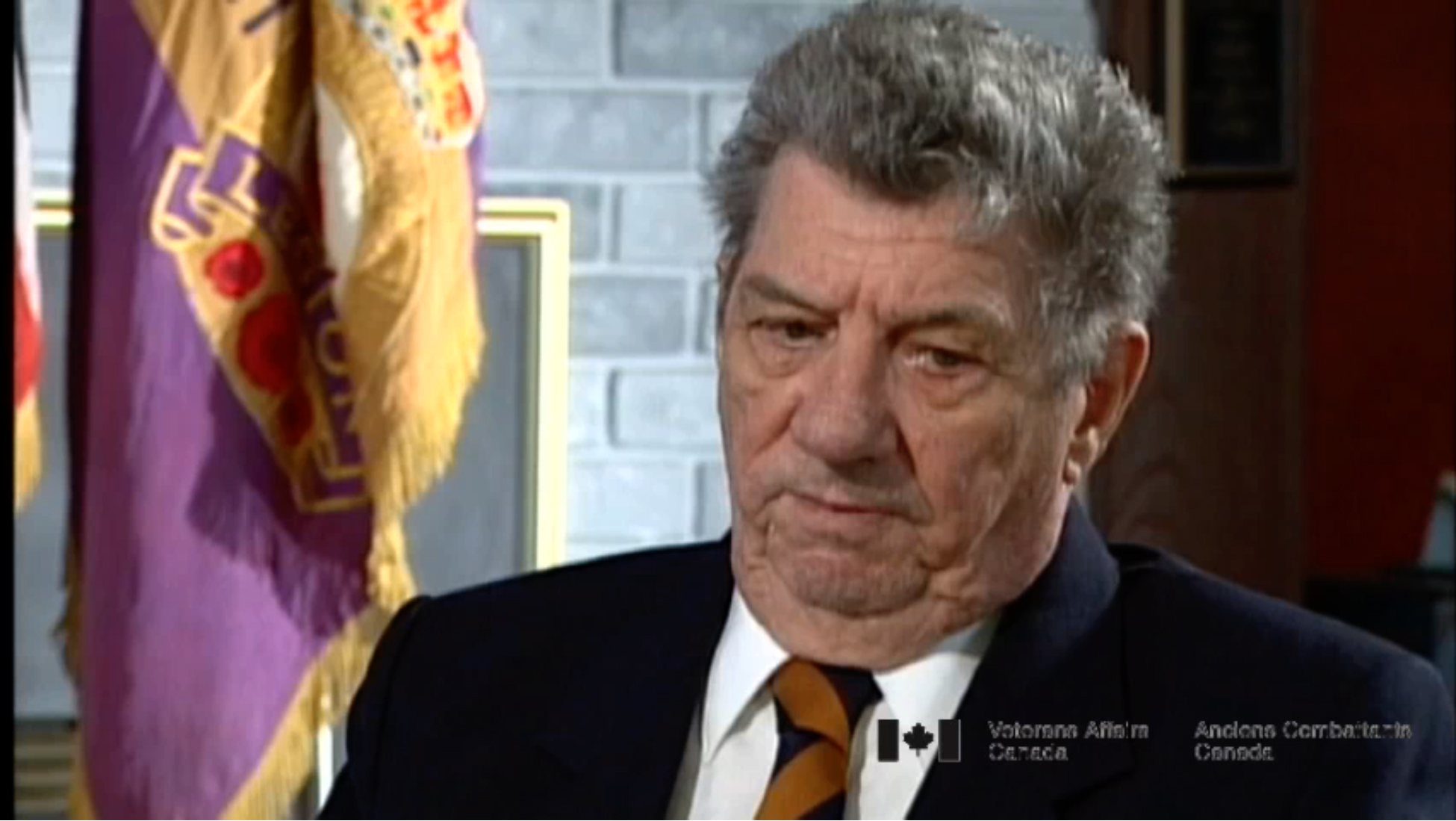Camps in Germany
Heroes Remember - The Second World War
Camps in Germany
Transcript
They sent us up there to guard the camps, all the guards were
gone and that, and they sent us up there. And we couldn't let em
out eh, we couldn't, we had to keep the outfit locked cause we
were waiting for the, the arrival of one of the medical field
units to come up, the medical. They wouldn't let us go in there
to, you know, do anything for ‘em and that. So just stay there
until the medics come up and then we'll open the gates.
But then medics went in and they sprayed them and everything
else, Holy, and it was, how anybody could treat people like these
people were treated, God. The kids and that they were so skinny
and so oh what you see on the movies is right, on the TV, if
anyone tells you there was no Holocaust, by jeez. So we were
there only, you used to get relieved because they wouldn't
let you stay there too long because I guess I don't know
disease or whatever it was but the medics were in, they were, a
whole wack of them come in there and fixed ‘em up because they
were jeez they were lying down they couldn't even get up you
know. I remember it and I don't want to remember it.
It was, oh God, walking skeletons, and people lying all
around the place and you didn't know if they were dead or alive
and you know you could only see from out the barbed wire,
there were no guards or anything there, they were all gone.
Interviewer: But they must have been happy to see you
versus......
Oh yes you see they come rushing see but we had to try and get
them to stay back, stay back because same time there on barbed
wire eh they were hurting themselves on the barbed wire and
it was worse, you know. And they didn't have the strength to,
oh it was a bad...
Description
Mr. Colbourne talks about guarding a camp in Germany and how difficult it was to see how the people had been treated.
Gerald Colbourne
Mr. Colbourne was born in Grand Falls, Newfoundland, in 1924 but at the age of one his family moved to Corner Brook, Newfoundland, so his father could work in the mills. Mr. Colbourne enjoyed growing up in Corner Brook where he went to school and played hockey and basketball. When not in school he enjoyed fishing and hunting. In March 1944, he joined the Infantry branch of the Army and was sent overseas a short time later. He arrived in London for his first look at war and then moved on to join his regiment in Italy and worked from Italy through to Holland and Germany until the war ended.
Meta Data
- Medium:
- Video
- Owner:
- Veterans Affairs Canada
- Duration:
- 02:40
- Person Interviewed:
- Gerald Colbourne
- War, Conflict or Mission:
- Second World War
- Branch:
- Army
- Units/Ship:
- Ontario Regiment
- Occupation:
- Tank Driver
Related Videos
- Date modified:



